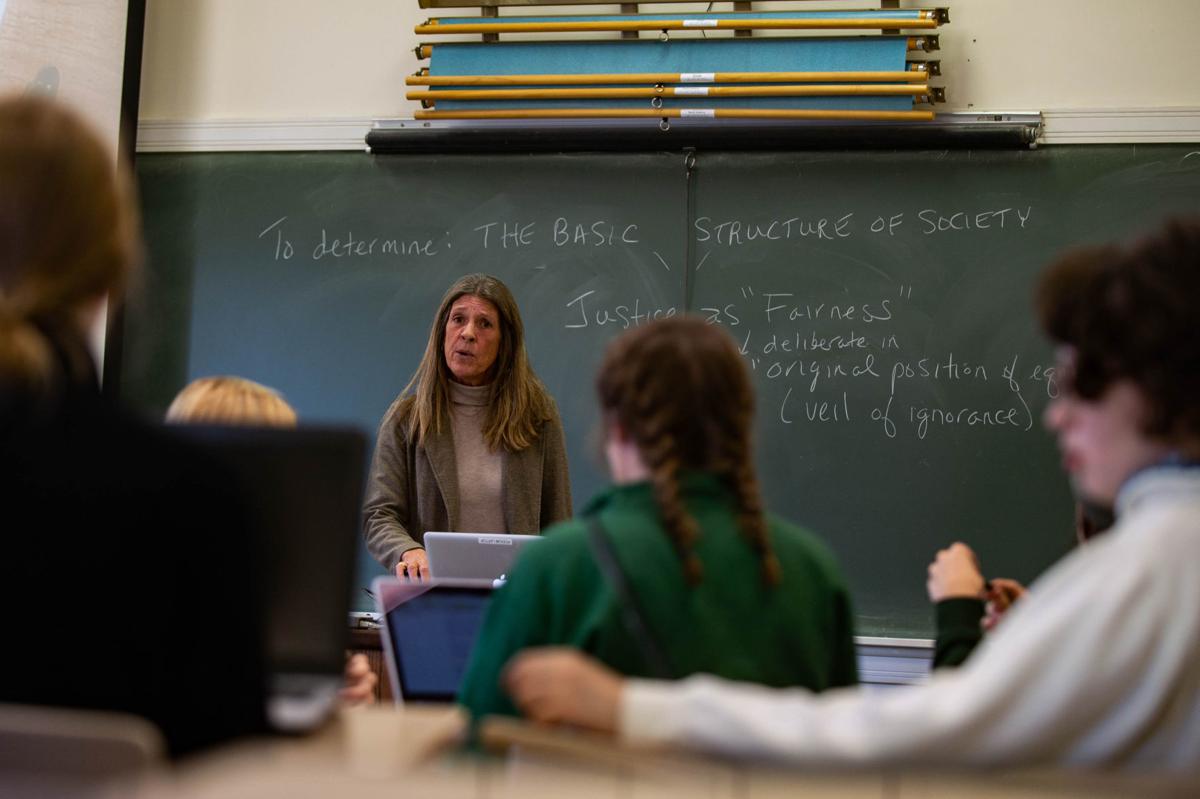Humanities majors still relevant in a dynamic workforce, study finds
Facing cuts to its state appropriation and dwindling enrollment, the University of Wisconsin-Stevens Point was forced to make a difficult decision: How to remove an $8 million structural deficit.
Earlier this year, the centrally located university in the Badger State proposed eliminating a dozen programs, mostly humanities majors traditionally held up as anchors of higher education in the United States.
After intense backlash, driven by those asking what a university would be without a history or English major, Provost Greg Summers scaled back his proposal. His revised plan, released earlier this month, still cut deep at UW-Stevens Point’s humanities offerings, however.
Summers, himself a trained historian, proposed eliminating the history major, as well as the university’s French, German, geography and art majors, which would allow UW-Stevens Point to cut faculty positions and realign departments to meet its budget.
The university would still offer minors in most of those programs, melding the humanities into more “career-focused,” interdisciplinary majors designed to help students attain employment upon graduation.
Students with an interest in history, for example, would be steered toward becoming a social studies teacher, into an “Applied Humanities” major with a discipline-specific emphasis, or toward a Global Studies major that would lead to a graduate program instead.
Back in the Cornhusker State, Josie Wren, a junior at Nebraska Wesleyan University, said the UW-Stevens Point model was the antithesis of why she chose to pursue a major in history.
“Every history major gets asked if they are going to be a teacher,” said Wren, 21, “but teaching is not for me.”
The Omaha native said she originally planned to major in theater at the private liberal arts college in northeast Lincoln, but her love for history got in the way. She aspires to earn a graduate degree in public history and become a museum curator.
But, like many who major in the humanities instead of fields such as business, engineering or science, Wren said she understands the perception that majors such as history, English or philosophy don’t lead to lucrative jobs right out of college.
“I always worry about that sort of stuff, but at the same time, I would not be good at physical therapy, business or math,” she said. “I love history and that’s what I want to do.”
Peridot McClinton, a senior film studies major at the University of Nebraska-Lincoln, said she also worries about finding a job where she earns enough to repay student loans while also living modestly.
“I am constantly concerned and asking if I should change my major,” said McClinton, 22, of Kansas City, Missouri. “But, for me anyway, I can’t go into a STEM (science, technology, engineering and mathematics) industry because that’s not my passion.”
Both said majoring in a humanities field has helped them develop critical thinking, close reading and oral and written communications skills — the kinds of skills growing increasingly important to employers.
In an analysis of more than 36 million job postings this year, the Strada Institute for the Future of Work and the labor market analytics firm Emsi found that while employers are seeking job candidates with technical skills, they also overwhelmingly desire candidates with so-called “human skills” such as communication, leadership and problem-solving.
“Most CEOs and hiring managers will tell you it matters a whole lot less what the name of your major is than if you can demonstrate those skills,” said Kathy Wolfe, the dean of undergraduate education at Nebraska Wesleyan and a professor of English.
Although those skills aren’t taught in humanities courses exclusively, they are practiced intensely in those disciplines, Wolfe added.
But fewer college students nationally are entering humanities fields, according to the Strada Institute and Emsi. In 1970, some 36 percent of college graduates held degrees in liberal arts-related fields. Today, that number stands at 23 percent.
There are exceptions. UNL has enrolled its highest number of humanities students — 847 in classical languages, classics and religious studies, modern languages, film studies, history and philosophy — in the past five years as overall enrollment has reached record levels.
June Griffin, associate dean of the College of Arts and Sciences, attributes the growth to a reaction against the marginalizing of the humanities.
“We’ve seen a pushback against the ‘What would you ever do with that?’” she said. “The answer is, you can do anything with the kind of knowledge and skill-set you learn in those disciplines.”
At Nebraska Wesleyan, however, the trend line of humanities graduates has dropped over the past six years from 50 to 29, while the number of majors and credit hours taken has also trended downward.
Wolfe, who is also a senior fellow at the Association of American Colleges & Universities, said there may be several explanations why fewer students are seeking degrees in the humanities.
Chief among them is what she called a “perception problem.” Higher education hasn’t done enough to communicate how humanities graduates can make themselves appealing to employers.
